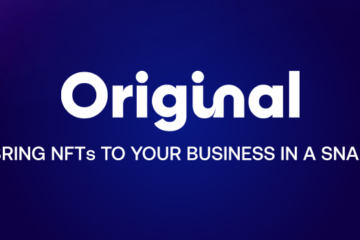In today’s tech world, AI is a big deal, changing how we do things. We use AI in our phones and homes for convenience. Now, there’s something new: wearable AI. It’s not just about cool gadgets; it’s about blending tech with fashion. Companies like Humane, Meta, and Rewind are making it happen.
Think about smart glasses that are more than eyewear—they’re like smart helpers. Microsoft even has a patent for an AI backpack. Imagine a future where our clothes and stuff become personal assistants. It’s not just about wearing the latest tech; it’s about becoming part of a tech-savvy future, where what you wear talks to what’s next.
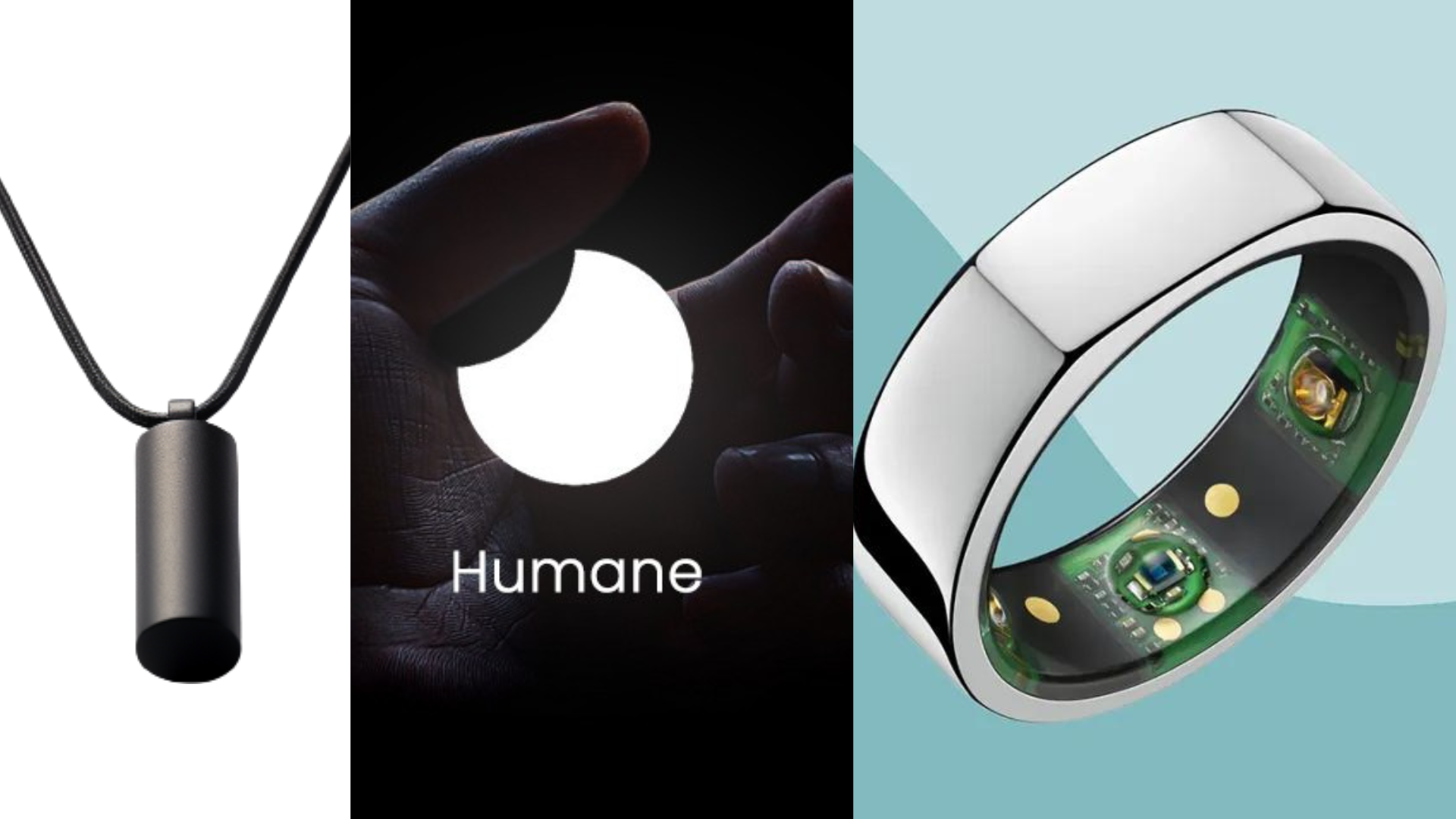

What is Wearable AI?
Once considered a distant dream, artificial intelligence (AI) is now a reality. This tech seamlessly embeds itself in nearly every sector worldwide. The latest frontier in AI applications is wearable AI, where the ultimate goals of the IT industry—miniaturization and enhanced intelligence—are brought to life.
The vision is to create AI-enabled devices that are constantly accessible without being burdensome to carry or operate. This concept holds enormous potential, allowing integration with a range of electronic devices, from smartwatches and glasses to bracelets and rings.
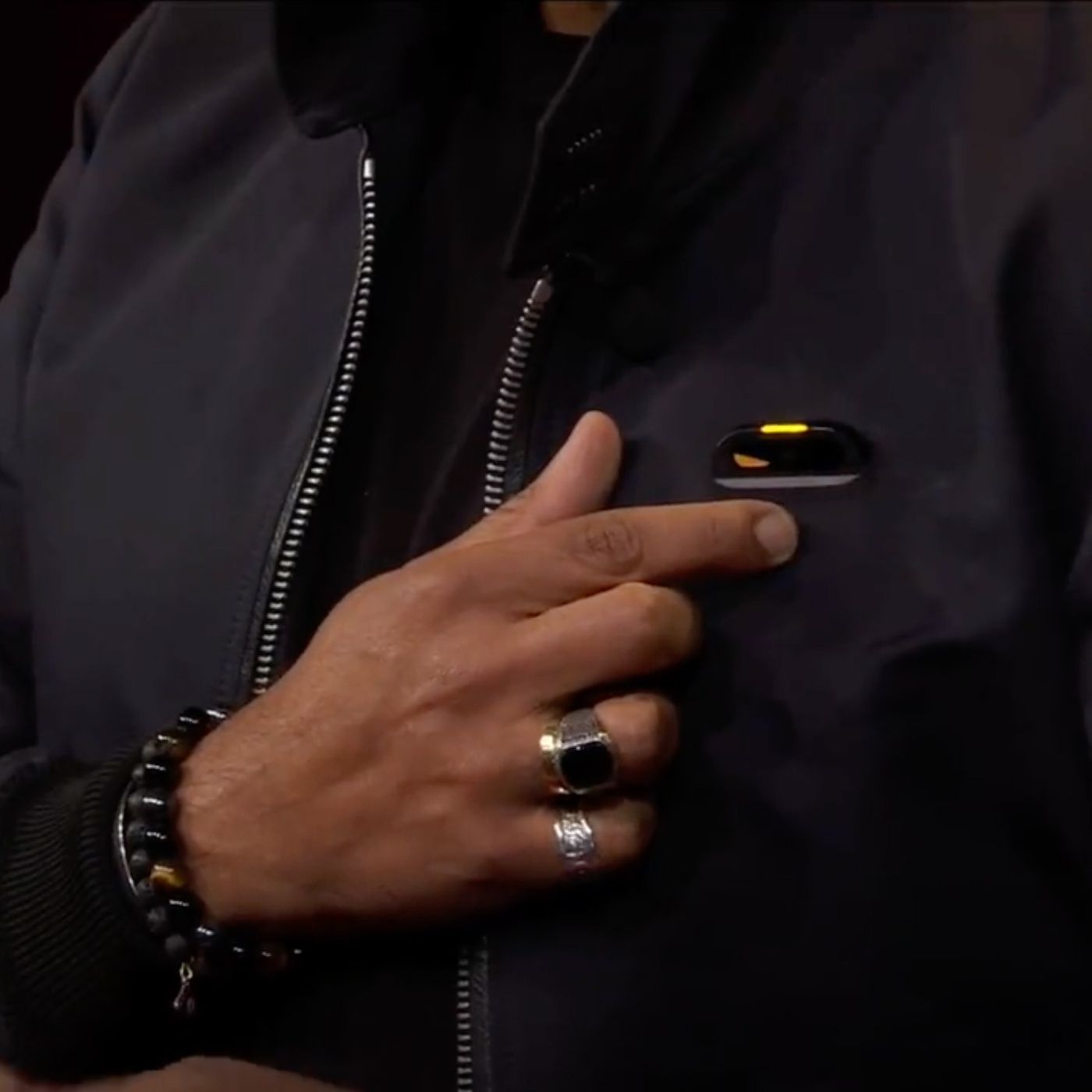

In this ever-evolving tech landscape, companies like Humane, Meta, and Rewind are at the forefront of this trend, pushing the boundaries of technology and fashion. While many companies use AI algorithms to enhance computing, only a few connect AI to devices or the cloud. Wearable AI is gaining traction, focusing on understanding which AI algorithms suit specific smart devices. In simple terms, wearable AI monitors and analyzes speech, heartbeats, and mood, and also offers timely warnings. Currently in its early stages, wearable AI is evolving to interact with users in real-time, marking a significant shift in personal tech engagement.
Who Should Use AI Wearables?
Wearable AI isn’t just a tech trend; it’s a versatile tool catering to a broad spectrum of individuals. Professionals across diverse sectors, including healthcare, logistics, and manufacturing, find wearable AI indispensable. Specialized wearables enhance productivity and safety, revolutionizing the way tasks are handled in these industries.
Fitness enthusiasts and athletes can also leverage these devices for real-time activity tracking. Further propelling them closer to their fitness milestones. Coupled with AI-powered fitness apps, these wearables become an invaluable companion on the journey to well-being. Those with health concerns or chronic conditions benefit from continuous monitoring. They receive real time alerts for anomalies like heart rate fluctuations, fostering a proactive approach to health management.
Beyond specialized needs, everyday users discover the convenience of AI wearables. From timely notifications and seamless navigation to integration with smart home systems, these devices seamlessly weave into the fabric of daily life, adding a touch of intelligence to the ordinary. Wearable AI isn’t just a gadget; it’s a personalized, multifaceted assistant enhancing different facets of our lives.
What Types of Wearable AI are There?
Wearable AI comes in various forms, like smartwatches, fitness trackers, health monitors, smart glasses, and wearable cameras. Smartwatches do more than tell time, managing notifications and health tracking. Fitness trackers count steps and calories, helping with fitness goals.
Health monitors keep an eye on vital signs for those with health concerns. Smart glasses add a digital layer to reality, while wearable cameras capture life’s moments. These types offer a blend of technology and style, making AI a part of everyday accessories.
As emerging tech, wearable AI is constantly evolving, and we’ll take a look at a few of the best options available, where innovation meets the intersection of technology and style in everyday accessories.
Rewind Pendant by RewindAI


The Rewind Pendant, an innovative AI wearable, captures and securely stores real-world conversations. Utilizing advanced AI voice-to-text technology, it transcribes, encrypts, and stores data locally for both efficiency and security. Designed with privacy in mind, it ensures recordings only happen with consent. Beyond privacy features, the pendant also serves practical purposes, allowing users to create to-do lists, meeting summaries, and emotional insights.
In its early development, the Rewind Pendant has already gained traction with over 3,200 pre-orders. Use cases range from aiding memory lapses at the grocery store to enhancing productivity in conferences. Despite concerns about consent, the pendant offers features to address them. Priced at $59 for pre-orders, it also signifies a compelling fusion of AI and everyday life, embodying the delicate balance between technological innovation and ethical considerations.
Oura Smart Ring


The Oura Ring, a discreet and fashionable wearable, is a sophisticated data-collecting device employing advanced AI technology. It utilizes three key sensors—
- Infrared Photoplethysmography (PPG) for heart rate and respiration,
- a Negative Temperature Coefficient (NTC) sensor for body temperature, and
- a 3D accelerometer for movement.
These sensors provide high-fidelity readings of signals from the heart, also contributing to unique insights into the user’s body functionality.
Oura Ring excels in providing in-depth sleep analysis, encompassing deep sleep, light sleep, REM sleep, and blood oxygen levels. Additionally, it offers a detailed activity tracker, measuring daily activity, sleep quality, and restlessness through the 3D accelerometer. The discreet design and variety of colors make it a subtle yet functional biometric wearable, earning it recognition as one of the best AI wearables.
The Oura Ring 3, the latest generation, introduces significant improvements, featuring 7 temperature sensors for enhanced menstrual prediction and illness detection. The device is made of durable titanium, waterproof up to 330 feet, and offers a long battery life of 4-7 days. It comes with a price range of $299-$449, with a $5.99 per month membership fee for full app access.
Despite its merits, potential drawbacks include the absence of half sizes, higher cost compared to some competitors, and the necessity to navigate a return policy with some limitations. However, the Oura Ring stands out in the market for its unique combination of fashion, functionality, and advanced health-tracking capabilities, making it a valuable investment for those seeking a discreet yet powerful wearable.
Humane Ai Pin


The Humane Ai Pin is a groundbreaking standalone wearable that integrates AI for revolutionary personal computing experiences. Developed Humane Inc, this clothing-based device employs a variety of sensors to facilitate contextual and ambient compute interactions, a concept introduced by Imran Chaudhri in his TED Talk. The collaboration with Qualcomm Technologies, Inc. is significant. This is because the Humane Ai Pin is powered by Qualcomm’s advanced Snapdragon platform. This further ensures superior AI capabilities and on-device performance. Imran Chaudhri and Bethany Bongiorno, Humane’s Co-Founders, express their excitement for a seamless, screenless, and sensing era of personal mobile computing.
Dev Singh, Vice President of Qualcomm Technologies, praises the revolutionary form factor of the Ai Pin. He highlights its real-time contextual information processing and personalized AI use cases. Ziad Asghar, Senior Vice President at Qualcomm Technologies, underscores the device’s superior AI experience, leveraging Generative AI for exciting and personalized use cases.
To stay updated and gain priority access upon its reveal, individuals can join the waitlist on the Humane website. The Humane Ai Pin promises to redefine personal computing through its innovative fusion of fashion and cutting-edge AI technology.
ChatGPT Watches
Is ChatGPT integrated into watches yet? The answer is roughly, no. Though direct integration of ChatGPT into smartwatches is yet to be witnessed, these apps provide exciting avenues for users to experience OpenAI’s technology on their existing devices.
- PeteyGPT for Apple Devices: PeteyGPT, formerly known as ‘watchGPT’, stands out as a ChatGPT-powered AI assistant tailored for iPhone and the Apple Watch series. Priced at $4.99, this app is available on iOS and watchOS, seamlessly integrating OpenAI’s technology into Apple wearables.
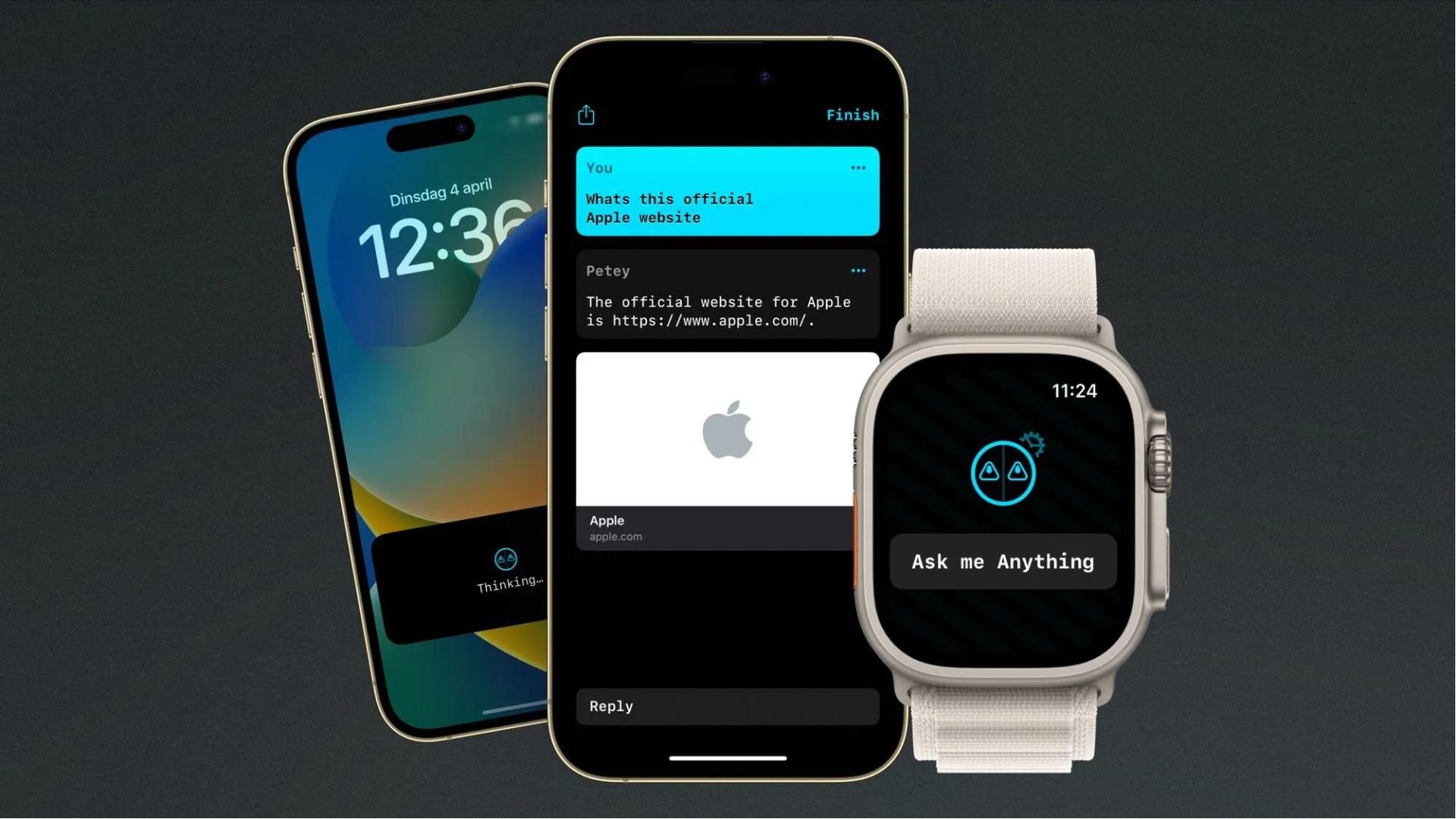

- WearGPT for Diverse Platforms: WearGPT offers versatility by allowing installation on various platforms, including Galaxy Watch, Pixel Watch, and Wear OS. This app also extends the reach of ChatGPT to a wide range of smartwatches, enhancing user experiences across different devices.
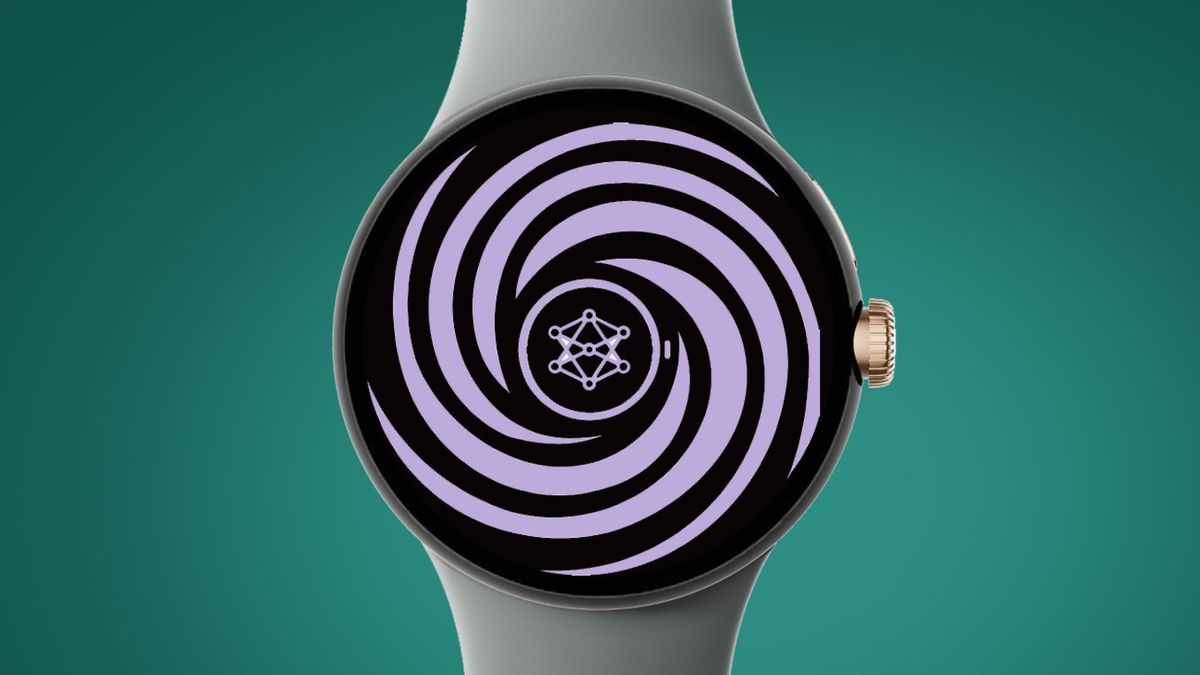

- Garmin Connect IQ Integration: While there’s no official confirmation, there are rumors circulating about a voice interface tool with Connect IQ by Garmin later this year. Additionally, tech enthusiasts are exploring unofficial ways to integrate ChatGPT into Garmin products, showcasing the potential for a diverse range of applications.
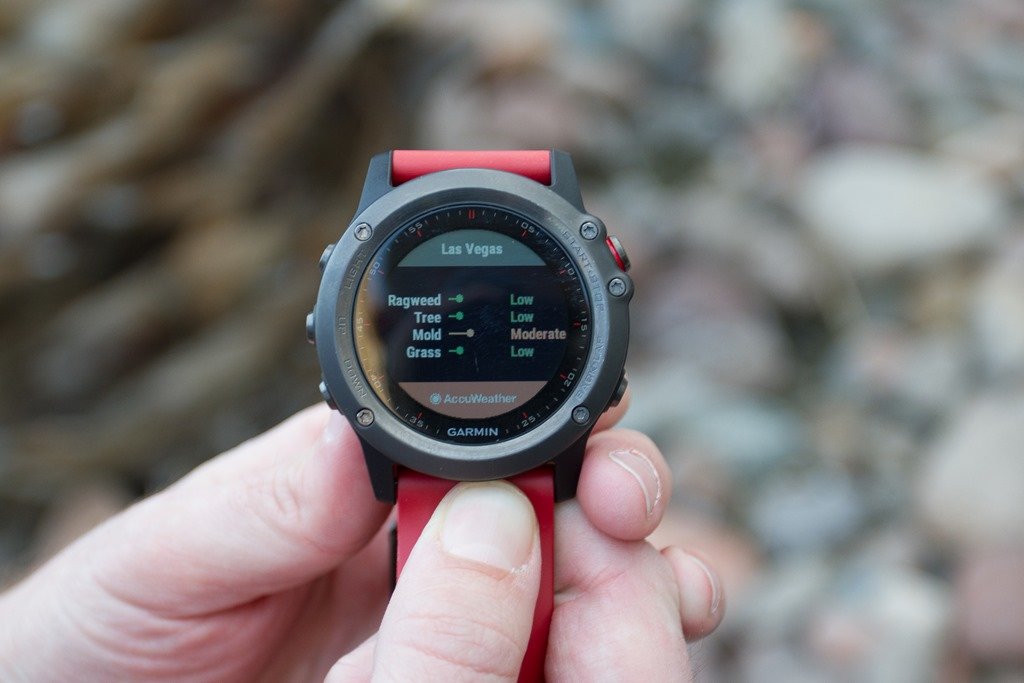

AI and Wearable Technology for Healthcare Workers
Artificial intelligence (AI) in the medical industry has ushered in a transformative era, particularly when combined with wearable technology. Wearables collect medical data, while AI solutions analyze and interpret it in real time. This enables proactive healthcare approaches for both medical professionals and patients
Below is a list of the advantages of AI in the medical industry:
- Proactive Health: AI wearables detect issues early, crucial for conditions like cardiac arrhythmias and sleep apnea.
- Remote Monitoring: Analyzing vital signs, wearables enhance remote care, reaching remote areas efficiently.
- Empowerment and Support: AI wearables offer real-time data for proactive self-management and assist healthcare professionals in remote monitoring, reducing burnout.
- Cost Efficiency: Improved diagnostics and streamlined processes reduce medical costs for both patients and providers.
- Chronic Disease Management: AI wearables empower patients to manage chronic conditions with early detection and personalized interventions.
- Medication Adherence: AI-enabled wearables provide personalized reminders, ensuring accurate and timely medication intake.
- Remote Patient Monitoring: Crucial for post-operative care, wearables track vital signs and health metrics in real time.
- Disability Assistance: AI wearables enhance the lives of individuals with disabilities through various support tools.
- Elderly Care: Combining functionalities, AI-powered wearables monitor vital signs, detect falls, and provide timely alerts for elderly care.
Mind Studios in Medical AI
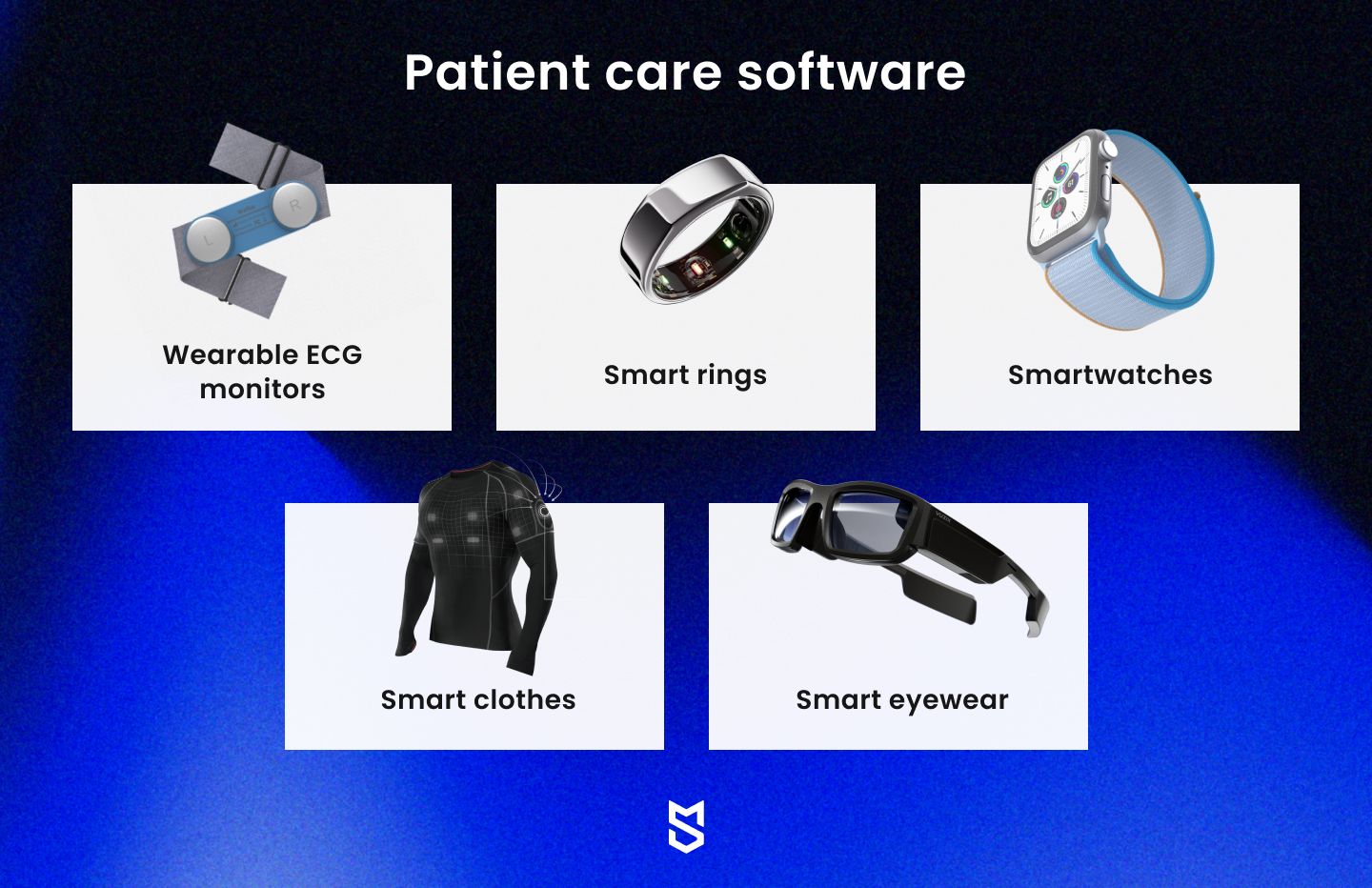

Mind Studios stands at the forefront of healthcare innovation, having actively engaged in healthcare projects, AI solution integrations, and IoT advancements. Their commitment to sharing insights is evident in articles exploring the implementation of artificial intelligence in healthcare software solutions, showcasing expertise that benefits both professionals and patients.
Navigating Mind Studios Ecosystem: A Condensed Listicle
- Unboxing AI Wearable: Upon selecting an AI wearable device, meticulously unbox it, inspect components, and charge or power it following manufacturer instructions.
- Connect with Companion Software: Download the companion software, often a mobile app, and pair the AI wearable with your device through Bluetooth or QR code authentication.
- Initial Setup Process: The software guides users through creating profiles, inputting health details, and configuring data sharing permissions with other apps and devices.
- Device Calibration and Personalization: Calibrate sensors for accurate data collection, ensuring proper contact with the body. Customize display, notifications, and personal goals to meet healthcare needs.
- Solution Maintenance and Support: Regularly update companion software and firmware following manufacturer guidelines for optimal efficiency. Maintain detailed documentation for reference.
In navigating the Mind Studios ecosystem, users can seamlessly integrate AI wearables into their healthcare solutions. They benefit from Mind Studios’ expertise and commitment to innovation. In summary, the synergy of AI and wearables is revolutionizing healthcare, offering benefits ranging from proactive health management to advanced monitoring and reducing the burden on healthcare systems.
Conclusion
AI’s integration into wearable tech isn’t just a technological leap; it’s a stylistic revolution pioneered by companies like Humane, Meta, and Rewind. The era of merely wearing technology is evolving into a symbiotic relationship between fashion and innovation.
Whether it’s Rewind’s privacy-centric pendant or Oura’s discreet health powerhouse, these devices redefine how we engage with personal tech. ChatGPT might not be on our wrists yet, but apps like PeteyGPT provide a sneak peek.
In healthcare, AI wearables empower not just professionals but everyday users with proactive health insights. Mind Studios stands at the forefront, unraveling the potential of AI in healthcare. Navigating their ecosystem means unboxing a future where AI seamlessly blends into the fabric of our well-being. Wearable AI isn’t just a trend; it’s the dawn of a tech-savvy era.
All investment/financial opinions expressed by NFTevening.com are not recommendations.
This article is educational material.
As always, make your own research prior to making any kind of investment.
 Bitcoin
Bitcoin  Ethereum
Ethereum  Tether
Tether  XRP
XRP  USDC
USDC  Lido Staked Ether
Lido Staked Ether  TRON
TRON  Dogecoin
Dogecoin  Cardano
Cardano  Figure Heloc
Figure Heloc  WhiteBIT Coin
WhiteBIT Coin  Wrapped stETH
Wrapped stETH  Bitcoin Cash
Bitcoin Cash  Wrapped Bitcoin
Wrapped Bitcoin  USDS
USDS  Chainlink
Chainlink  Wrapped eETH
Wrapped eETH  Binance Bridged USDT (BNB Smart Chain)
Binance Bridged USDT (BNB Smart Chain)  LEO Token
LEO Token  WETH
WETH  Hyperliquid
Hyperliquid  Monero
Monero  Stellar
Stellar  Zcash
Zcash  Coinbase Wrapped BTC
Coinbase Wrapped BTC  Ethena USDe
Ethena USDe  Litecoin
Litecoin  Sui
Sui  Avalanche
Avalanche  Hedera
Hedera  Shiba Inu
Shiba Inu  sUSDS
sUSDS  USDT0
USDT0  Dai
Dai  Mantle
Mantle  Toncoin
Toncoin  World Liberty Financial
World Liberty Financial  PayPal USD
PayPal USD  Cronos
Cronos  Uniswap
Uniswap  Ethena Staked USDe
Ethena Staked USDe  Polkadot
Polkadot  MemeCore
MemeCore  Aave
Aave  Bittensor
Bittensor  USD1
USD1  Canton
Canton  Rain
Rain 

